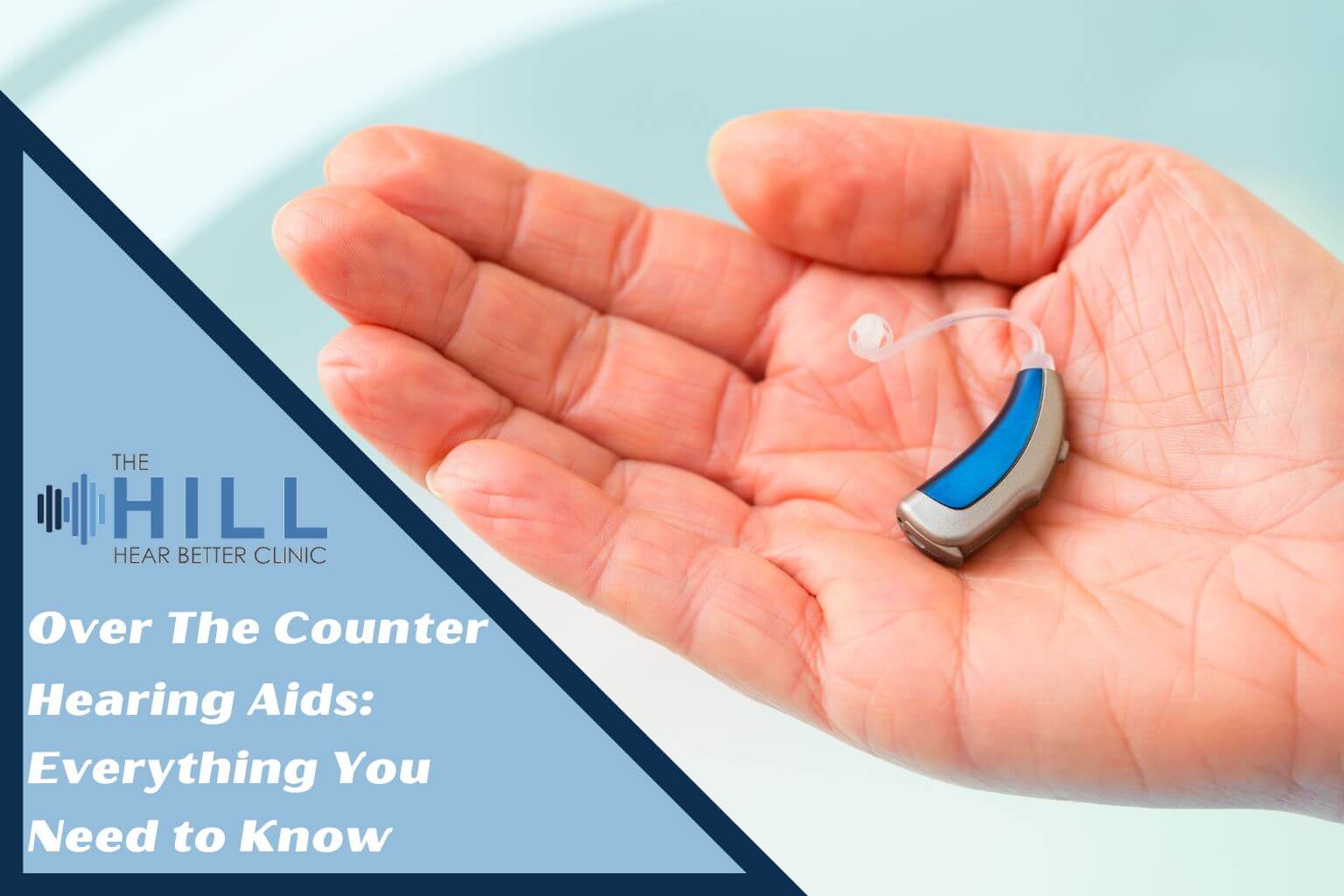 If you’ve been following the news lately, chances are you have heard about the recent ruling by the FDA to allow for Over The Counter (OTC) hearing aids to be sold directly to consumers. These devices can be sold in-store and online to consumers without a medical exam or fitting from an audiologist.
If you’ve been following the news lately, chances are you have heard about the recent ruling by the FDA to allow for Over The Counter (OTC) hearing aids to be sold directly to consumers. These devices can be sold in-store and online to consumers without a medical exam or fitting from an audiologist.
Our #1 goal is to keep our patients and readers informed so we want to take a few minutes to explain what Over The Counter hearing aids are and how they differ from prescription hearing aids.
What is a Prescription Hearing Aid?
These types of hearing aids are prescribed by an audiologist who is expertly trained to address all levels of hearing loss. A thorough examination is completed to match the patient with the proper hearing technology and diagnose and treat any other underlying issues.
What is an OTC Hearing Aid?
OTC hearing aids can be purchased online or through a retailer without a medical exam or fitting by an audiologist. A consumer may or may not take an online self-guided hearing test before purchasing.>
The recent ruling from the FDA is being presented as a sort of ground-breaking recategorization of the hearing aid industry, but in fact these devices have been around and available for quite some time. The main change with this ruling is simply a relabeling of what already exists. What was formerly known as Personal Sound Amplification Products is now approved to be called OTC Hearing Aids. Although the name has changed, the pros and cons you should weigh with these devices have not.
What are the pros of OTC hearing aids?
- This ruling regarding the labeling of OTC hearing aids will surely open up hearing care to a bigger audience for three reasons.
- The initial cost will be lower due to the consumer not needing an exam.
- The ease of purchasing a device will allow the consumer to test the waters to see if better hearing improves their quality of life.
- These OTC hearing devices will be a stepping stone for someone who is unsure about needing a hearing aid.
What are the cons of OTC hearing Aids?
- Misdiagnosis – someone may think they are suffering from hearing loss when in fact they simply have clogged ears or another issue that is affecting their hearing.
- Missed health issues – during a professional exam with an audiologist, all parts of the patient’s health and hearing are considered. We often refer patients out to other medical professionals to receive treatment for concerns we find out during examinations.
- Poor results – prescription hearing aids are chosen and fine-tuned specifically for the individual who is going to be wearing them while OTC options are a much more out of the box experience. Chances are you may not get the results you’re looking for.
- Poor fit – proper fit is key to comfort and results when it comes to hearing aids. OTC options won?t be customized to fit your exact needs and physical ear.
- Very little research on OTC hearing aids – although OTC hearing devices have been around for quite some time, there is still very little research on the efficacy of them.
- Not regulated by FDA – much like the supplement industry, OTC hearing aids are not regulated by the FDA other than their output limits, which means the barrier to entry for manufacturers is minimal.
- No aftercare/follow up – Which is necessary for proper treatment of hearing health.
What does this all mean for you?
Regardless of how hearing devices are labeled or marketed, there?s no replacement for a medical examination by a licensed audiologist and a proper treatment plan. At The Hill Hear Better clinic, we follow industry best practices and conduct a comprehensive hearing evaluation using the most advanced technology, equipment available, and happily provide unlimited after care.
If you believe you or someone you love could benefit from improved hearing, please reach out to us. We are here to help!
